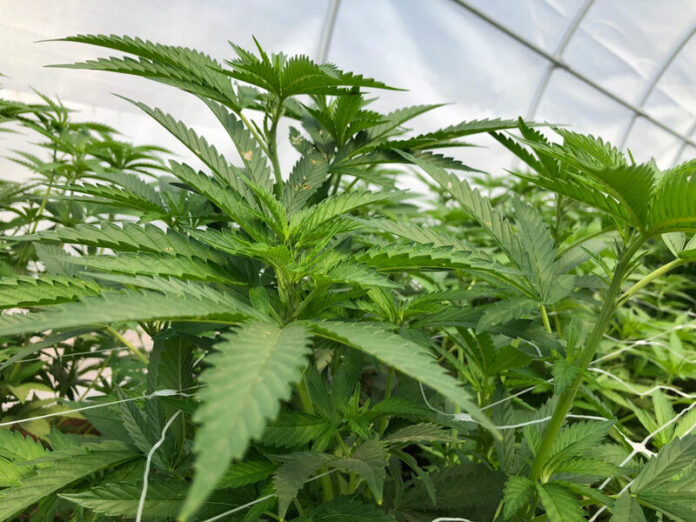The critical differences of opinions between commercial cannabis growers and rural neighbors are beginning to come into focus as the county is hosting a series of virtual town hall meeting on its major updates to its Commercial Cannabis Cultivation Ordinance, first written in 2016 and updated almost annually since.
The latest 32-page proposal includes the most dramatic changes to the land use rules that will eventually dictate where, and where not, cannabis can be grown and harvested. The proposal seeks to greatly streamline the permitting process and lists a series of standards for water use, energy sources, property setbacks, crop odor controls and safety requirements. The new permit process is being called “ministerial” and is being moved from the county’s planning department to the Agricultural Commissioner’s office and staff.
During the first virtual town hall meeting held on March 8, there was a total absence of agreement or consensus between participating cannabis growers and future rural neighbors.
“This ordinance does not treat cannabis like any other crop,” said cannabis industry attorney Joe Rogoway. The proposed restrictions are inconsistent with state rules and could prohibit almost all commercial cultivation, he complained.
“These proposals are too flawed to bring forward,” said west county rural resident James Bracco, a member of Save Our Sonoma Neighborhoods. County staff should start over and “do a total rewrite,” he said.
“This (cannabis cultivation) is agriculture and it should be treated as such,” said Vince Sholten, a leader of the Hessel Grange #750, a pro-cannabis organization that claims 70 members.
The majority of town hall comments from both sides of the update debate focused on the skunk-like odor of cannabis. Growers criticized the added burdens and costs of mitigating odors with filtration, screening and setbacks while neighbors said that 100-foot setbacks from property lines and 300-foot from neighboring structures were insufficient. Several neighbors urged minimum setbacks to be 1,000 feet from a neighboring property line to any active marijuana grow. Some cannabis industry proponents endorsed setting the setbacks at no more than 600 feet, the current state requirement.
“If the county requires a 1,000-foot setback then it would knock-out almost all locations in the county for permitting,” said Ron Ferraro, owner of Elyon Cannabis, a Sonoma County cultivation and cannabis product company.
At one point, town hall facilitator B.J. Bischoff said the proposed ordinance would require all crop odors to be contained on the cultivated property and not be detectable on neighboring parcels. But the county’s agricultural commissioner, Andrew Smith, a member of a five-member county staff panel, said detectable odors are unavoidable.
“Odor from agricultural activities are unavoidable like poultry farms, swine operations or dairy and manure,” he said.
He said approval of commercial cultivation projects would depend on specific locations, wind patterns, hedge row and other screening and the time of day or season.
County planner and panelist Jennifer Klein said “we want an ordinance where the odors are controlled. This is what we want comments on.” Her wish was granted as the majority of the 263 questions and comments focused on the skunky smelling reputation of the green leafy and flowering plant.
Two more virtual town hall sessions are being held on Friday afternoon, March 12. The county’s planning commission is scheduled to review all the public comments on March 18 (the end of the public comment period) and a public hearing on the ordinance update is tentatively scheduled in from on the Board of Supervisors on March 18.
The proposed ordinance sets a minimum property size to 10 acres. Properties must be zoned for agriculture use or rural resource. Properties of 10 to 20 acres would be allowed to cultivate one acre of either indoor or outdoor grow. Properties 20 acres or larger would be allowed to cultivate up to 10% of available land in cannabis, subject to property, stream, ridge top and sensitive habitat setbacks.
All cannabis grow applications must file a safety and security plan, water use and renewable energy plan and would have to file for an additional use permit for any planned events on the property. Besides securing a county cultivation permit, all growers must have a state license and participate in the Track-and-Trace System. The program requires a series of state fees and commercial cannabis is subject to both state and local taxes.
Besides participating the county virtual town hall sessions, members of the public can register comments and questions at the Sonoma County Cannabis Program website via the email address: cannabis@sonoma-county-org.
41.1
F
Healdsburg
November 15, 2024








